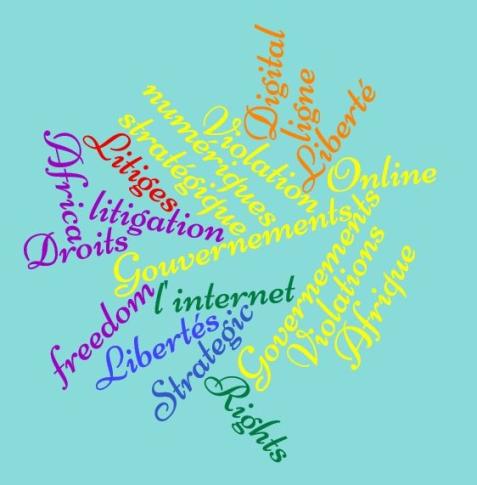
Africa as a whole is facing a critical crisis when it comes to digital rights. Internet shutdowns are on the rise, breach of privacy is becoming common, and arbitrary charges and prosecution of journalists, bloggers and common citizens over critical opinions expressed on internet are rampant. It seems like everyone is waking up to the fact that after restricting physical civic spaces and making it difficult for citizens to express themselves offline, it is now online spaces that are under attack by governments.
Very recently, Cameroon shutdown access to the internet for 93 days, to its citizens in the anglophone part of the country, adding to the long list of countries (Democratic Republic of Congo, Uganda, etc.) that have shut down the internet partially or fully around elections or civil unrest, claiming that it is for security reasons. Other countries, like Zimbabwe, are just making internet access expensive, while others are reportedly lowering internet speeds to frustrate information sharing.
The range of digital rights challenges in Africa also extends to the normalisation of SIM card and national ID registration, complete with the capturing of biometric data in the absence of laws or safeguards to protect personal data. This is very important, especially as registration processes mandated by the government involve third parties, which presents a challenge in terms of who citizens can hold accountable in case of data breaches.
In the age of big data, where tech companies are investing in algorithms that process data in ways that can influence undecided voters, geo-locate those taking part in demonstrations, or even predict pregnancies, we know that our data should not be handled without appropriate security.
Can you imagine terrorists using the same stratagem to recruit on the continent, or authoritarian regimes bullying citizens who dare to speak up? Or, worse still, an unscrupulous individual stealing or selling the registration databases for profit?
What about adolescents, rural men and women who don't have the necessary identification documents required for SIM card or citizenship registration? The registration process is not only challenging for them, but also restricts their rights to access information, knowledge and services, be it mobile money or public health and education. Then there is the case of whistleblowers or investigative journalists who, without guarantees of anonymity, are afraid for their lives for speaking truth to power.
The result of the above is that citizens’ rights to information, privacy, free speech, assembly and association, innovation and employment opportunities across Africa are being stifled. Ultimately, it hinders socioeconomic growth on a continent already challenged with development. This grim state of affairs formed the basis of discussions at the Forum on Internet Freedom in Africa, 2017 edition, held in Johannesburg, South Africa, on 27-29 September.
Nonetheless, an opportunity to challenge this status quo also emerged at the Forum, through a training workshop on strategic digital rights litigation. Hosted by the Berkman Klein Center for Internet and Society at Harvard Law School and the Media Legal Defense Initiative (MLDI), the workshop sought to encourage internet activists to collaborate across disciplinary silos to more effectively push back against legal frameworks that are not conducive to a free and open internet.
How to strategically litigate for digital rights
Start by finding THE story or case that encompasses most of the frustrations and challenges that pose a threat to digital rights and can drive public awareness and collaborative interest. Whereas litigation may not always lead to a successful ruling, it serves as an opportunity to set precedent and feed jurisprudence not only at country level but sometimes also at the sub-regional or regional level.
Notable examples include the case of Shreya Singhal, a 21-year-old law student who challenged issues of online free speech and intermediary liability under India’s Information Technology Act. India’s Supreme Court ruled in favour of freedom of expression and the right to information as guaranteed by the constitution.
In Burkina Faso, journalist Lohé Issa Konaté, who had faced harsh criminal penalties for publishing several newspaper articles that alleged corruption by a state prosecutor, was successful in a case against the government, with the judgment overruling his conviction on charges of defamation.
Of course, litigation requires that there is first respect for the rule of law, and separation of power between the state and the judiciary. Coming from the Democratic Republic of Congo, a country where these ideals are not a reality, I was a bit discouraged when listening to stories of litigation around the world. But recent examples such as the Kenyan supreme court nullifying the presidential election results convince me that there is hope.